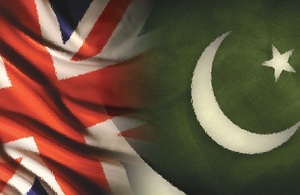UK pledges up to £130m for girls’ education in Pakistan
The United Kingdom (UK) on Saturday announced a bilateral programme worth up to £130 million to support girls’ education in Pakistan that will impact nearly 17 million children.

Launched in May this year, the Prime Minister’s Girls’ Education Action Plan sets out practical steps to deliver the UK’s global objectives on girls’ education. Titled Girls and Out of School: Action for Learning (GOAL), the programme will support the governments of Punjab and Khyber Pakhtunkhwa (KPK) improve outcomes for girls and the most marginalised. GOAL focuses on two main priorities. In Punjab and KPK’s least developed districts, it will directly support around 250,000 marginalised children to enrol and stay in school. It will also support an additional 150,000 girls to read by age 10.
GOAL will improve learning outcomes for at least 16.9 million children (7.8 million girls) by strengthening the provincial education systems to improve the quality and equity of education, particularly the quality of teaching, and becoming more resilient post-Covid. The programme will directly support children to access education and learning in several Commonwealth countries.
GOAL will introduce changes to make education more inclusive; ensuring children are taught at their correct learning level, and influencing others to adopt better education practices.
UK High Commissioner to Pakistan Dr Christian Turner CMG said:
No nation can reach its full potential without 50% of its population. Getting girls into school is a key driver of growth. We want to give girls awaaz and marzi, voice and choice and unleash the potential of the next generation.
Notes to editors:
- There are 132 million girls out of school in the world – about 9.2% (12.2 million) are in Pakistan.
- Girls’ education remains a significant challenge with lower enrolment rates and higher drop-out rates for girls, particularly at the transition from primary to secondary school. The poorest rural girls are most affected: 54% of the poorest 25% of girls are out of school and these girls are only achieving one third of the learning of the wealthiest 25% of girls and boys.
- In Punjab, the average literacy rate for women is 54% (44% in rural areas) compared to 72% for men. A recent study shows that 2.2 million adolescent girls aged 15–19 years in Punjab are neither at school, nor employed or married. In Khyber Pakhtunkhwa (KPK) more girls are out of school (66%) than boys (34%). Only 40% of girls are enrolled in primary schools in the Newly Merged Districts and out of those enrolled, just 3% transition on to middle school. At higher secondary level, there are only approximately 250 girls still studying across the whole province.
- The UK is a world leader in championing girls’ education. Between 2015 and 2020 the UK supported 8.1 million girls to gain a decent education.
- The set-back of Covid-19 has been huge – this is the third consecutive year of school disruption with 616 million children still affected by partial or full school closures.
- Global learning poverty is at crisis levels and continues to worsen in the wake of Covid-19; the worst shock to education and learning in a century. The context in which education is being delivered worldwide is becoming increasingly challenging. Extreme weather events, slower-onset climate change, conflicts, protracted crises, and other disasters are on the rise, causing significant disruption to education and children’s wellbeing.
- These programmes will support us in ensuring the most marginalised children can re-enter education and learn whilst they are there. They are a core enabler of the UK government’s manifesto commitment to ‘stand up for the right of every girl to access 12 years of quality education’.
For updates on the British High Commission, please follow our social media channels:
- Twitter: @UKinPakistan @CTurnerFCDO
- Website
Contact:
British High Commission
Islamabad
Tel: 0300 500 5306